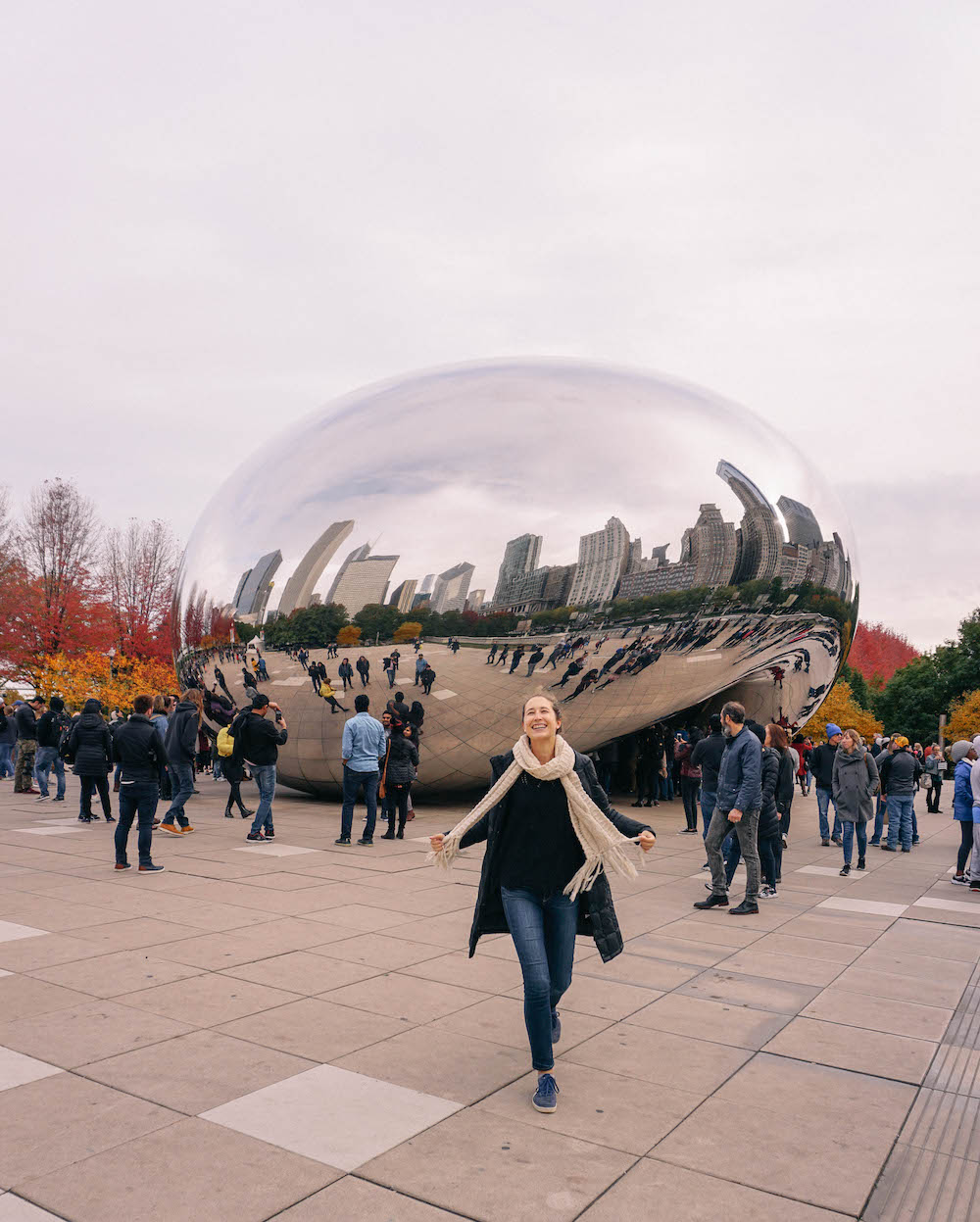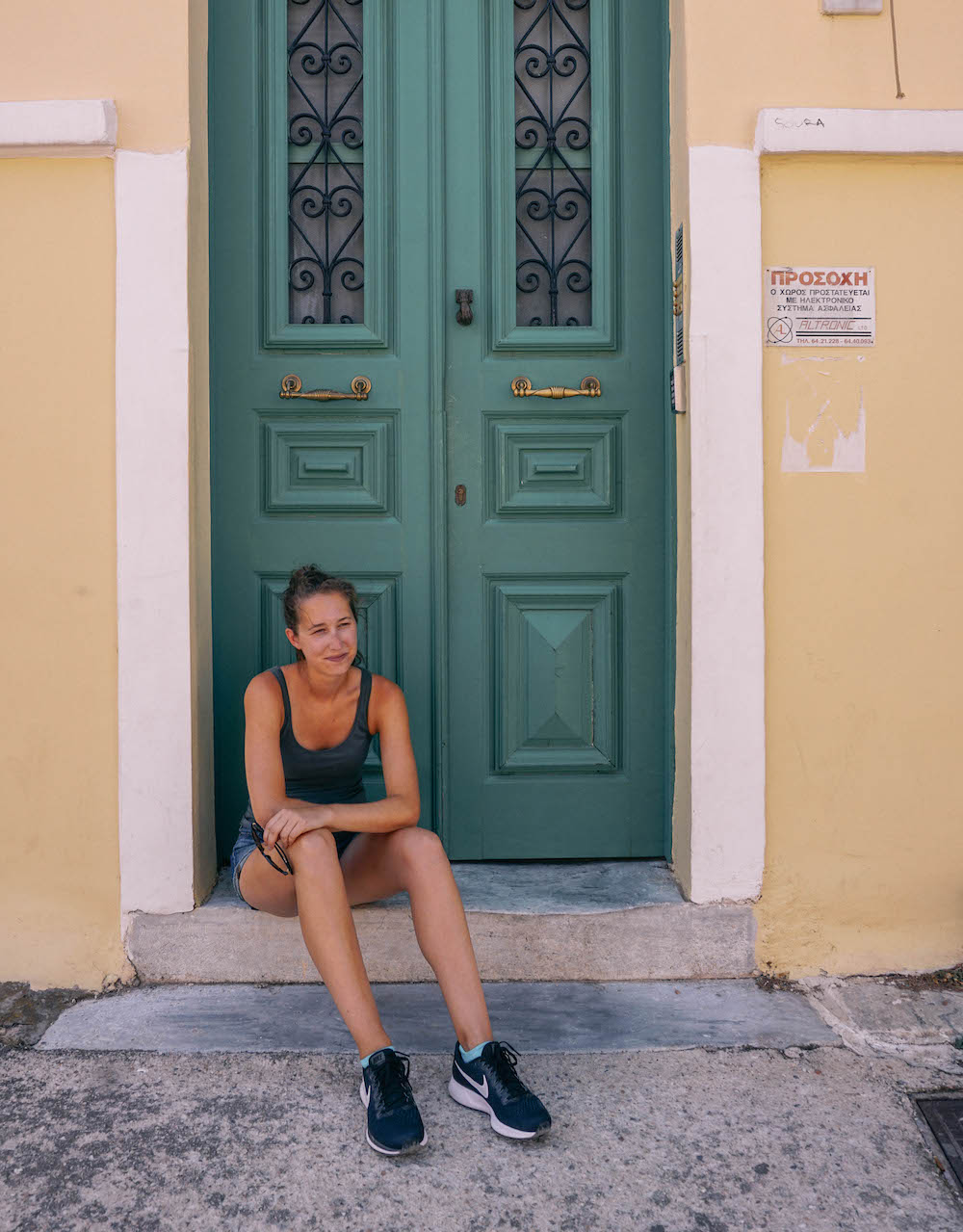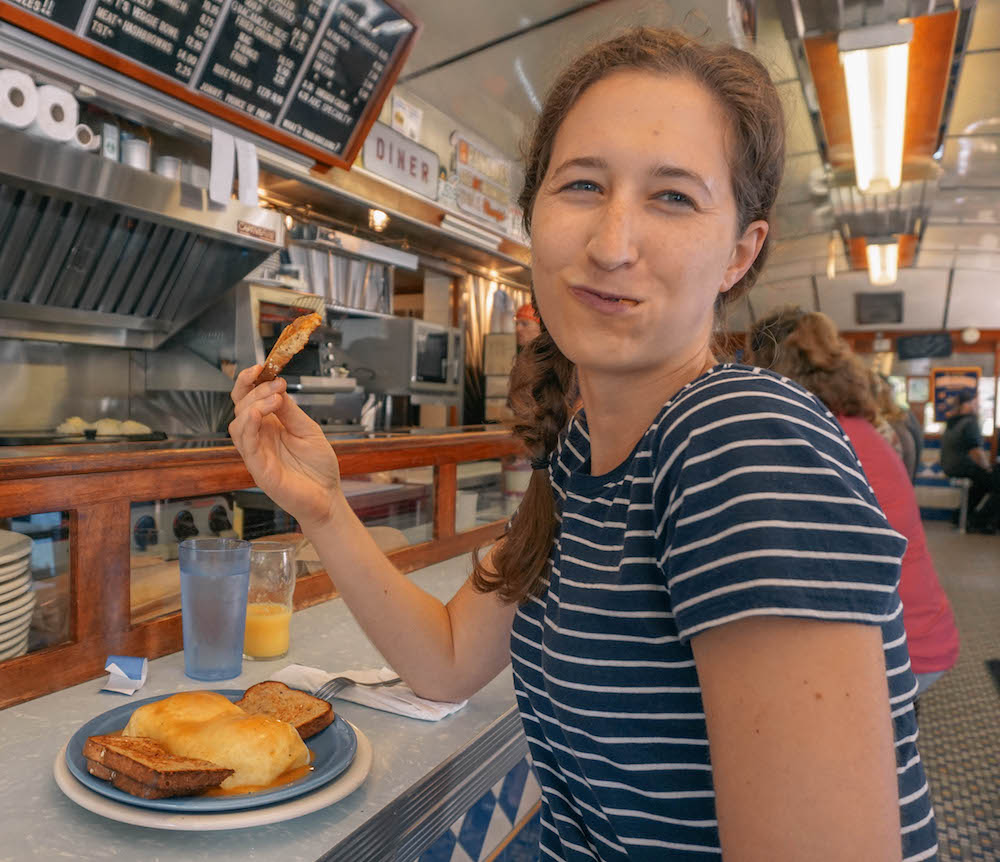Not sure how to save money for travel? Spoiler: you don’t have to sell all your possessions to afford a vacation. Here are simple, yet effective ways to save up for your next trip!
Graduating college and landing my first job in NYC was one of the most exciting experiences of my life. I still remember receiving my first paycheck and thinking, holy crap this is so much money! (Looking back now, I realize it really wasn’t that much money). Suddenly, the world was my oyster. I could go out to eat with friends whenever I wanted, buy new clothes when the mood struck, and, yes, I could get my very own credit card!
But after a few months of living life on the edge of my budget, I realized I needed to start thinking long-term about my budget and begin spending my money on things I genuinely cared about. For me, travel has always been a top priority. The most traveling I’d done in college was during my semester abroad in Germany but even then I couldn’t travel too much since my bank account had a finite amount of money in it.
I was initially overwhelmed at the thought of saving money for travel (and all other aspects of my life, for that matter). But I was lucky enough to have an accountant for a roommate, and between the advice both she and my parents gave me I quickly figured out how the heck I was supposed to create some travel savings for myself and begin planning for future adventures.
Quick disclaimer: this is the lazy girl’s guide on how to save money for travel. If you google “how to save up money for travel,” you’ll find lists with 20+ ways to create a travel savings nest egg, and many of those posts include tips about selling all your unneeded possessions or downloading confusing apps that somehow give you money back for buying items online. Personally, I don’t have the time or energy to do all that. So while my methods for saving money for travel may be minimal, these are all the ways I’ve saved money for future adventures that have actually worked for me.
Create a Separate Savings Account
At the risk of sounding like a dum-dum, it wasn’t until I began working full-time that I learned the difference between a saving account and a checking account. (I know, yikes!). Nor did I know you could create multiple savings accounts at the same bank. (Do I sound like an idiot yet?). So you can understand my amazement when I learned I could create a separate savings account just for future travels.
For some reason, I’m really uptight about spending the money in my checking account, despite the fact that that money has been set aside to be spent now. Having a separate travel savings account makes it easy to see exactly how much money I can draw from when booking hotels and flights, and makes paying those more expensive travel costs less stressful since I know for sure I have enough money in my other accounts to pay for my everyday living expenses.
Set up Automatic Transfers to Your Savings Account
Jumping off my first tip, I highly recommend setting up automatic monthly transfers to your travel savings account. When I worked a 9-to-5 job, I set the automatic transfers for the end of each month (when I received my second paycheck). That way, I always knew my first paycheck of the month would go solely towards living expenses and my second paycheck would be split between fun activities right now, future travels, and my retirement accounts. I never had to think about the money being taken out of my paychecks, and my travel savings account was able to grow naturally on its own.
The exact amount of money you set aside is up to you. There’s no magic number I can give you that will perfectly accommodate your lifestyle or budget. But when you first begin considering how to save money for travel, first think about: 1) Where you want to travel, 2) When you want to travel, and 3) How you want to travel. The time of year you visit a specific destination and how you get there (i.e. bus, train, plane, etc.) will affect how expensive the trip will be overall and thus will determine your budget. And if you’re a freelancer like I am, keep in mind that when you don’t work you don’t get paid. So you may want to consider saving a little extra money to cushion yourself during this time.
Cash in on Credit Card Points
Another budgeting tip my accountant roommate explained to me was how to cash in on my credit card points. Most credit cards these days have some sort of points system, and if you resist spending them each month you’ll be able to save up a decent amount. Credit card points can typically be cashed out (i.e. money will be added directly to your savings account) or you can redeem your points on hotel stays, flights, and other travel experiences.
If you’re an avid traveler, you may want to sign up for a credit card that’s been created specifically for travelers. I currently use the Chase Sapphire Preferred card and really like it. It’s a small investment since there is a yearly fee associated with it ($90 per year, I think), but there are no foreign transaction fees with this card and I get double points whenever I use it to pay for travel-related expenses. So those double points essentially pay for the yearly fee after a few small trips. There are tons of other travel-focused credit cards to pick from though. Many airlines have partnerships with various credit card companies, and Disney also has special deals through certain credit cards. Do your research to find out which credit card is a good fit for your travel goals!
Oh, and one last thing: read the fine print when you sign up for your credit card. The points I accumulate with my credit card can be cashed in whenever, but some credit card points expire after a certain point. Be sure to cash in on those points before they disappear!
Create a Few Budget Rules (& Stick to Them!)
When first learning how to save money for travel, I think the best thing you can do is to set realistic budgeting rules for yourself so that it’s easy to actually stick to them. I found it useful to write out my budgeting rules and every few months I’d look back over them to see which were easy for me to stick to and which I was struggling with. Remember: the way you budget is flexible. If a certain budget isn’t working for you, it’s okay to reevaluate things.
A few budgeting rules you may want to consider to help grow your travel savings are:
- All tips or yearly bonuses must go directly into your travel savings account.
- When eating out at restaurants, you must order water instead of buying a drink.
- You may only pay for one movie streaming service per month (i.e. Netflix or Hulu, but not both).
- You can only spend a certain amount of money at the grocery store each week.
An so on, and so forth. Again, I think it’s very important to set budgeting rules that you can realistically stick to and that won’t make your everyday life stressful. In my experience, restricting your everyday spending too much can make it difficult to enjoy the moment. My parents taught me to always live below my means so I can comfortably and easily save my money without stressing about it, and that principle has always worked for me.
Track Your Expenses
It wasn’t until I began freelancing that I finally created a spreadsheet to track my expenses. I was actually shocked at the amount of money I was spending each month. It’s not that I was spending too much money, it’s that my estimations for how much money I usually spent were always way off. One month I’d think I had done so well at cutting back on my spending, only to realize I’d spent more than the previous month. And another month I stressed myself out thinking I’d spent too much money, only to find out I’d actually done a good job on spending less. What the heck??
Once I started writing down every little thing I spent my money on, I was able to get a better idea of where my money was going month after month and the areas of my life I needed to cut back on. I found it helpful to color code every purchase so that in a glance I could see how much of my expenses were from “fun” activities, how much were from “health and wellness” purchases, and so on. I do my best to update my expense sheet every week, but that doesn’t always happen. But I do my best, and that’s what counts!
I hope these tips on how to save money for travel are helpful. I know some of these tips are basic, but I was totally clueless about the best ways to save money when I started working full-time and these money saving tips really helped me out in the beginning.
Before I sign off, I wanted to note that the above tips will only help you save money for travel if you’re sensible about the rest of your budget. If you Uber everywhere instead of taking public transportation, buy lunch every day instead of packing it, and pay for an expensive gym every month but rarely workout it’ll be tougher for you to save much money for future adventures. So really think hard about your budgeting practices to determine the best course of action moving forward. I have faith in you!
Tell me: What’s one way you save money every month?
More posts you’ll love:
- 10 Easy Ways I Save Money While Traveling
- How to Keep Money Safe While Traveling
- How to Deal with Homesickness While Traveling
- 10 Useful Tips for Taking Your First Solo Trip
- My Top Tips for Planning a Weekend Getaway








Leave A Reply!